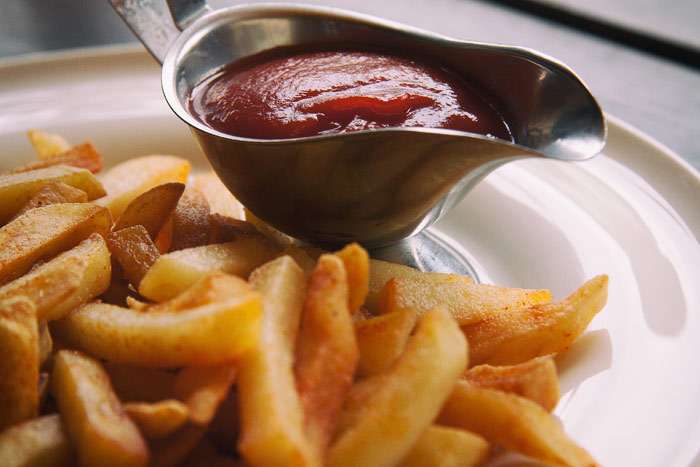A food diary is needed to control your diet and to identify flaws in it. After analyzing the records, you can create a more balanced diet. How to keep a food journal?

The basic rules of keeping a food journal are:
1. Honesty
The main rule in keeping a diary – you need to be very honest making notes. By omitting any product, you, first of all, fool yourself. Secondly, the analysis of the diary will not give the correct information.
Start making records on Monday and record everything you eat and drink during the day. Record not only the name of the dish, but the portion size, as well.
It will be wrong to write just “chicken salad” – you should mention the specific part of the chicken, whether it is with or without skin, the way it is prepared, which vegetables it includes, what kind of salad dressing is used (mayonnaise, butter), and how much, and so on.
Do not forget coffee, tea and plain water. In general, write down everything that gets into your stomach, and preferably right away. By the way, it is much easier to control calorie intake when you cook on your own.
Read Also: 7 Tricks for a Flat Belly
2. Food diary analysis
For the first time, you can analyze the records in a week, say next Monday. Before the analysis, take 2 markers – red and blue – and mark the notes.
Mark the following products red: bread and pastry, different sweet products (candy, sugar, honey, etc.), butter, milk products with fat content over 2.5%, sausage, potatoes, pasta, fat meat and chicken with skin. These foods are high in calories and are stored as fat.
Mark the following products blue – pickles, canned and marinated foods, smoked foods, cheese. These products boost appetite and cause water retention.
Look at the diary and evaluate what you have got.
If your diary is marked red and blue uniformly, you need to reconsider your eating habits completely and come up with a more healthy and balanced diet. If red predominates – reduce the consumption of fat and fat-containing products (pay attention to lean meats and chicken). If blue dominates – you are abusing pickles and marinades.
At the end of each day, count calories.
Just keep in mind that the data will not be 100% accurate, as it is impossible to determine the energy value of the product precisely unless we create laboratory conditions.
The normal daily rate of energy consumption is 2300 kcal for women and 2600 kcal for men who are not engaged in physical work. To start losing weight, your calorie intake should be at least 500 kcal below these figures.
In addition to accurate records of the amount of food eaten, you will need some additional indicators.
Of course, you do not need this, if you are using an app to keep a food log.
3. You should weight yourself every day
Weigh yourself every morning for 14 days and record the data.
If the weight increases, and in a few days it returns to the previous level, take a look at your notes. The weight gain may be due to the fact that you ate something salty or spicy, drank a lot of tea or an alcoholic beverage.
If so, next time after eating such foods, give up salt for a day, eat more fresh fruits and vegetables, drink alkaline mineral water, plus an unsweetened rose hips infusion. This will help eliminate excessive fluid from the body.
If your weight is not reduced, perhaps your caloric intake is equal to or even greater than your energy consumption. Do not forget that menstrual cycle phases influence weight as well. Remember this when keeping a food diary.
4. Track your physical activity
Make a record after each fitness session (time and type of exercise), a walk in the park (time, tempo), cleaning the apartment etc. Each activity has its energy consumption level. You can also use many free apps to do this.
Read Also: Best Abs Exercise for a Toned Belly
As practice shows, keeping a food journal immediately identifies flaws in your diet and lifestyle. Try to keep records, and you will appreciate the advantage of this method in weight loss.
The last question remains, “How long should I keep records?”
Typically, it takes 2-3 months to adapt to a new lifestyle and form healthy habits. It is also the minimum period to keep a food diary, or until you decide that you are able to control your diet.










